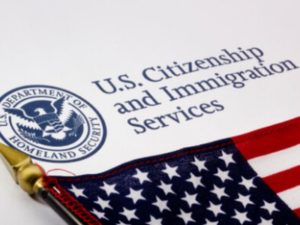Update: Between the writing and publication of this article, a federal judge granted a motion for a preliminary injunction against the U.S. Citizenship and Immigration Services (USCIS) fee rule discussed herein. As long as this preliminary injunction is in place, the existing fees remain as before.
Effective October 2, 2020, all EB-5 investors will need to pay more to file Form I-526 Petitions and Form I-829 Petitions pursuant to a proposed rule by the United States Citizenship and Immigration Services (“USCIS”). The increase to the petitions in the EB-5 visa category is part of a comprehensive increase to petitions, applications and other benefits proposed by USCIS in August 2020.
The new fee for the I-526 Immigrant Petition by Alien Investor will rise to $4,010 from the previous fee of $3,675.
The new fee for the I-829 Petition by Investor to Remove Conditions on Permanent Residence Status will rise to $3,900 from the previous fee of $3,750.
All petitions postmarked on or after October 2, 2020 must include the new increased fees as established by the final USCIS fee rule.
According to USCIS, the increased fees are a result of increased costs to adjudicate immigration benefit requests, detect and deter immigration fraud, and thoroughly vet applicants, petitioners and beneficiaries. The rule also supports payroll, technology and operations to accomplish the USCIS mission.
EB-5 stakeholders such as the American Immigration Lawyers Association (“AILA”) and the American Immigration Council (“AIC”) submitted comments in response to the proposed rule. In a joint statement submitted to USCIS, AILA and AIC opposed the proposed fee increases noting that if implemented as written, the proposed rule would require customers to pay increased fees for decreased services. In recent years, USCIS case processing has slowed dramatically, due in significant part to the agency’s own inefficient policies, especially in the EB-5 visa category. Currently, USCIS reports adjudication times for I-526 petitions at 37 to 73.5 months and I-829 petitions at 28.5 to 51.5 months.
Two lawsuits have been filed against the USCIS challenging key components of the final rule and requesting a preliminary injunction enjoining (stopping) implementation of the rule. If the implementation of the fee rule is enjoined, it is likely that USCIS will be required to continue to use its current fee schedule and accept current versions of all forms. However, if the court does not grant the injunction, EB-5 investors must be prepared to file petitions consistent with the new fee rule.
For more information on the fee increases in the EB-5 visa category or any other visa category fee increase, contact one of our immigration lawyers in Asia.
ENTERLINE & PARTNERS CONSULTING
Ho Chi Minh City, Vietnam Office
Suite 601, 6th Floor, Saigon Tower
29 Le Duan Street
Ben Nghe Ward, District 1
Ho Chi Minh City, Vietnam
Tel: +84 933 301 488
Email: info@enterlinepartners.com
Facebook: Enterline & Partners – Dịch vụ Thị thực và Định cư Hoa Kỳ
Website: http://enterlinepartners.com
Manila, Philippines Office
Unit 2507 Cityland 10 Tower 1
156 H.V. Dela Costa Street
Makati City, Philippines 1209
Tel: +632 5310 1491
Email: info@enterlinepartners.com
Facebook: Enterline and Partners Philippines
Website: https://enterlinepartners.com/language/en/welcome/
Copyright 2020. This article is for information purposes only and does not constitute legal advice. This article may be changed with or without notice. The opinions expressed in this article are those of Enterline and Partners only.




